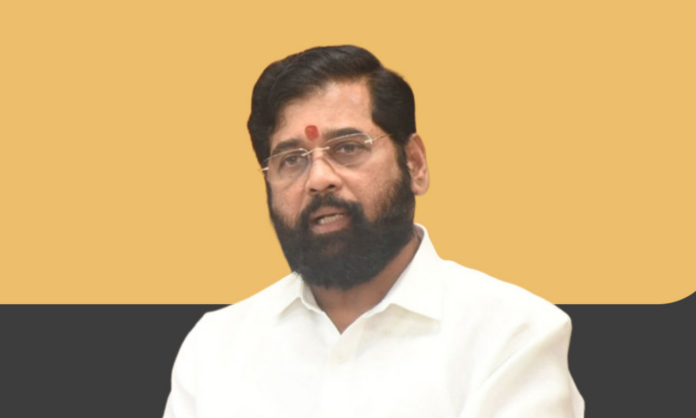Chief Minister Approves ₹29,550 Crore Projects in Ratnagiri: Boost to Aerospace, Defense, and Advanced Technology Sectors with Over 38,000 Jobs
Maharashtra Chief Minister Eknath Shinde has given the green light to two significant industrial projects worth ₹29,550 crore in Ratnagiri district, marking a major step forward in the region’s economic and industrial development. These projects, which are expected to create a combined 38,120 jobs, signal a pivotal shift in Maharashtra’s industrial landscape, particularly in advanced technology sectors such as aerospace, defense, and silicon wafer fabrication.
The approval was granted during a cabinet subcommittee meeting of the industrial department, which took place on Friday. The meeting was attended by key political figures, including Chief Minister Eknath Shinde, Deputy Chief Ministers Ajit Pawar, and Devendra Fadnavis. The cabinet’s decision underscores the state’s commitment to boosting industrial development and employment opportunities, particularly in rural and semi-rural districts like Ratnagiri.
One of the two major projects approved is related to advanced technologies, with a particular focus on silicon wafers, ATMP (Assembly, Testing, Marking, and Packaging), and semiconductor fabrication. This project will be established in the Watad and Zadgaon areas under the Maharashtra Industrial Development Corporation (MIDC) in Ratnagiri. With an investment of ₹19,550 crore, this ambitious initiative is projected to create 33,000 direct and indirect job opportunities, transforming the region into a hub for cutting-edge technological production.
The initiative, known as the Vellore Information Technology Park project, represents Maharashtra’s third major venture into the advanced silicon wafer and ATMP sectors. As the demand for silicon wafers and semiconductor technology continues to rise globally, this project is poised to position Maharashtra as a key player in the technology supply chain. Additionally, the project will likely foster technical innovation, research, and development in the state, attracting further investment in the semiconductor and technology sectors.

Not only will this project create thousands of jobs, but it will also stimulate the local economy by promoting the growth of a robust supply chain benefiting micro, small, and medium enterprises (MSMEs). Moreover, it will offer significant training and skill development opportunities for local workers, equipping them with expertise in the rapidly evolving semiconductor industry. The local workforce will be upskilled in assembly, testing, and packaging technologies, which are critical components in the electronics and IT sectors.
The second project approved by the Maharashtra government marks the state’s first major venture into the aerospace and defense sectors. Reliance Infrastructure, a prominent player in the defense manufacturing space, will lead this initiative with an investment of ₹10,000 crore. The project will focus on producing aerospace and defense equipment, creating 4,500 direct and indirect jobs for residents in Ratnagiri and nearby areas.
This venture is particularly significant because it highlights Maharashtra’s entry into the defense and aerospace manufacturing domain, a sector where India has been working to become more self-reliant. As global tensions rise and national security concerns gain prominence, India is increasingly focusing on boosting its defense production capabilities. The Reliance Infrastructure project will contribute to this broader national strategy by developing cutting-edge aerospace and defense technologies within the state.

By encouraging local manufacturing of aerospace and defense equipment, the Maharashtra government aims to not only enhance its industrial output but also contribute to the nation’s defense ecosystem. This project is expected to stimulate technical research and development while fostering collaborations with global defense firms and suppliers. In addition, the initiative will likely promote the growth of MSMEs in the defense supply chain, providing further job opportunities and economic growth for local businesses.
The two projects together are anticipated to create a significant boost in employment across Ratnagiri district, with 38,120 new jobs set to emerge as a result of these investments. While the silicon wafer project will primarily generate jobs in the technology and electronics sectors, the aerospace and defense project will provide employment opportunities in advanced manufacturing and technical fields. These ventures will also offer local workers training in emerging technologies, such as semiconductor manufacturing and defense production, helping them to develop skills that are in high demand globally.
Moreover, the projects are expected to have a multiplier effect on the local economy. By fostering innovation and growth in the semiconductor and defense sectors, the region will attract further investment and the establishment of ancillary industries. These sectors require a strong local supply chain, which will benefit local MSMEs, creating even more jobs and business opportunities for the residents of Ratnagiri.
These two projects reflect Maharashtra’s broader focus on becoming a leader in advanced technology sectors, including electronics, aerospace, and defense manufacturing. As global markets increasingly rely on high-tech industries for growth, the state is positioning itself as a key player by encouraging investments in cutting-edge technologies. By approving these projects, Maharashtra is signaling its intent to not only boost employment but also drive technological innovation and economic growth in less-developed regions.
Chief Minister Eknath Shinde, along with Deputy Chief Ministers Ajit Pawar and Devendra Fadnavis, has hailed the projects as major milestones in the state’s industrial development agenda. The aerospace and defense sector, in particular, marks a strategic pivot for Maharashtra, as the state aligns itself with the national goal of becoming a self-reliant defense producer.
With the approval of these two landmark projects in Ratnagiri, Maharashtra is set to witness a surge in job creation and industrial growth. The focus on advanced technologies such as silicon wafer fabrication and aerospace defense production will not only generate employment but also stimulate local economies and upskill the workforce. These developments are expected to have long-lasting impacts on the region, positioning Maharashtra as a leader in the technology and defense sectors while contributing to the nation’s broader goals of self-reliance and industrial growth.

